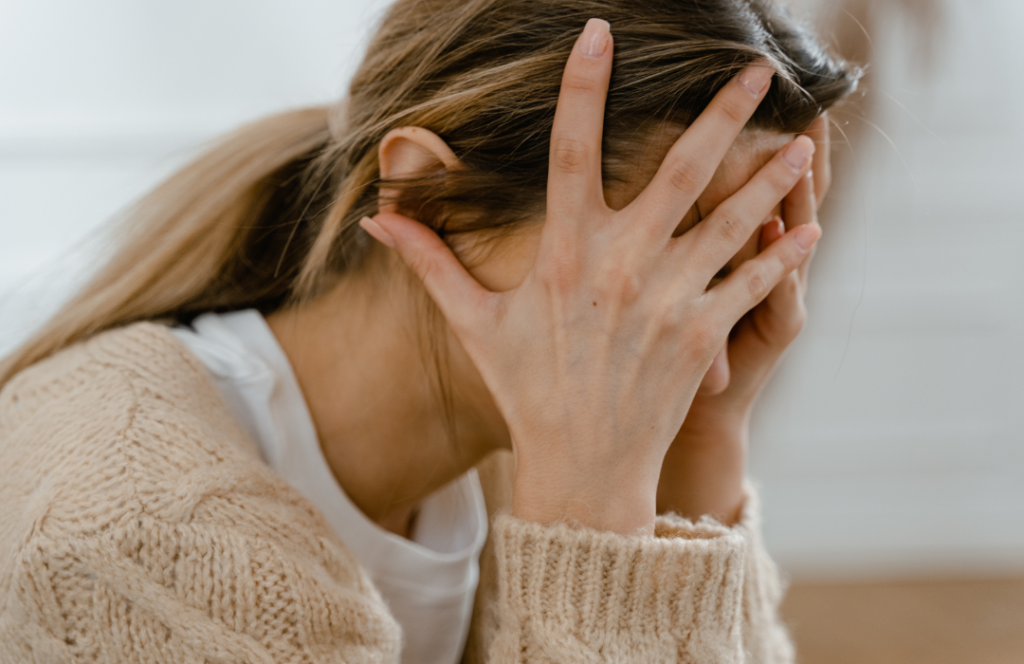Note: As an affiliate, I earn a small commission from qualifying purchases made through links in this post. This helps support my work, but it won't cost you any extra. For more information, please read my full disclosure here.
This blog will give you the best ways to deal with peer pressure as an adult!
When I was a child, I had to deal with peer pressure a lot, and I thought that if I tried my best to achieve certain things, peer pressure would go away.
However, as I’ve grown, I’ve learned that it doesn’t always work that way. Peer pressure doesn’t always disappear with high school diplomas and college degrees. It can rear its head in unexpected ways even in my adult life.
Now, I want to be clear—I’m not talking about peer pressure for teenagers or children (I’ll save that topic for other blogs). In this corner, I want to focus on peer pressure as an adult and share my personal journey with you.
You see, dealing with peer pressure as an adult is something we all need to be aware of and address.
So, as I dig into my own experiences and the things I’ve learned over time, this blog will give you practical ideas, stories from my life, and comforting tips. If you’re ready, let’s dive right into it!
The Definition of Peer Pressure

Peer pressure, as defined by the Merriam Webster Dictionary, is a powerful force in our lives. It’s that feeling you get when you believe you must conform and do the same things as other people in your age group or social circle to gain their approval or respect.
It can manifest in subtle ways, like adopting certain habits, beliefs, or behaviors because everyone else seems to be doing it. It can also rear its head in more overt forms, like feeling compelled to make decisions solely to fit in or avoid judgment.
Peer pressure isn’t just limited to the teenage years; it can persist into adulthood, taking on new forms and presenting fresh challenges. As grown-ups, we often find ourselves navigating complex social and professional networks where the pressure to conform can be just as real and impactful as it was during our school days.
Positive and Negative Effects of Peer Pressure
Positive effects
1. It inspires you and helps you achieve your goals

Personally, when I see a friend who recently started her own business and is doing really well, it lights a fire within me. I start thinking about my own dreams and goals, whether it’s pursuing a new career, going back to school, or launching a creative project. Her success reminds me that I, too, can aim high and achieve my aspirations.
Let’s say you have friends who prioritize their health and wellness. They encourage you to join them for regular walks, try out fun workout classes, or swap healthy recipes. Their positive influence can help you make healthier choices in your daily life, from eating nutritious meals to staying active and feeling your best.
2. It helps you step out of your comfort zone

You know those friends who love excitement and adventure? When they suggest fun trips or thrilling activities, it makes me want to try something new and exciting too. Their brave attitude inspires me to do things that I might not have thought about before.
For example, one of my friends suggested a spontaneous road trip to a place I’d never been to. At first, I was a bit nervous, but their excitement convinced me to go. We had an amazing adventure, exploring new places, meeting interesting people, and making memories that I’ll always cherish.
Being around adventurous friends like them helps me step out of my usual routines and discover new experiences. It’s like opening a door to exciting opportunities and learning more about myself along the way.
3. It makes you feel curious and eager to know more

Having friends who really enjoy learning has a big impact on me. We talk about interesting stuff and suggest books that make us think deeply. Sometimes, we even take classes or go to workshops together to keep growing and learning.
But there’s something else. These friends have inspired me to start this blog. They love learning and sharing what they know, and it made me think, ‘Why not create a place where I can share what I’ve learned in life?’ That’s how I came up with the idea for this blog.
Through this blog, I want to share my journey, the good and bad times, and all the things I’ve learned from the amazing people I’ve met. I want it to be a place where people like you can also learn, grow, and be inspired, just like I have been by my lifelong learning friends.
Negative effects
1. It gives you financial stress

Peer pressure can have a significant impact on your financial well-being. Imagine having friends who constantly indulge in extravagant spending, dining at upscale restaurants, or taking lavish vacations. The pressure to keep up with their lifestyle can lead to financial stress and overspending.
For example, you might find yourself consistently dining out at expensive places or purchasing luxury items you can’t afford just to fit in. Over time, this can accumulate debt, strain your budget, and hinder your ability to save for essential expenses like retirement or emergencies.
2. It influences you to make unhealthy lifestyle

Peer pressure can make us do things that aren’t good for our health because we want to fit in with friends who seem cool. For example, if friends drink a lot or smoke and want us to do the same, we might feel like we should join in, even if it’s bad for us. The need to be part of the group can make us ignore what’s healthy.
If your friends drink too much alcohol; you might feel like you should drink a lot too, even though it’s harmful. Or if your friends eat lots of unhealthy junk food, you might copy them and not take care of your body. This can be a problem because it can harm our health in the long run.
3. It makes you feel bad about yourself

Peer pressure has a way of making you feel like you’re not good enough. Imagine being in a group where everyone seems to have it all together – successful careers, perfect relationships, and seemingly flawless lives. When you constantly compare yourself to them, it can trigger feelings of inadequacy and self-doubt.
For example, if your friends are all achieving significant milestones in their careers, you might question your own achievements and feel like you’re falling behind. This constant comparison can lead to a sense of failure and erode your self-esteem.
The pressure to measure up to the achievements or appearances of others can be overwhelming. You might start doubting your abilities and worth, thinking, “Why am I not as successful or happy as they are?” These thoughts can contribute to anxiety and a persistent sense of not being good enough.
How to Deal with Peer Pressure As an Adult
1. Spend less time with peer pressure influencers

Limiting your time around people who constantly make you feel pressured or doubtful is crucial for your well-being. Imagine having friends who always want you to do things their way, even if it doesn’t align with your values or comfort.
To start, identify those individuals or situations that consistently make you feel this way. Whether it’s certain friends, coworkers, or specific places, recognizing these sources of negative influence is the first step.
Your mental and emotional health should always come first; remember that your feelings and self-confidence matter. It’s perfectly acceptable to express your boundaries to those pressuring you and ask for respect in return.
Seek out supportive friends who celebrate your uniqueness and encourage personal growth. Engage in self-care practices, like hobbies you enjoy or mindfulness, to boost self-esteem and resilience.
Learning to confidently express your thoughts and decisions without feeling compelled to conform is crucial.
Remember, it’s okay to have fewer friends than you did before, but these high-quality and healthier relationships will be more rewarding and supportive. Prioritizing your well-being and surrounding yourself with people who genuinely care about you will lead to a happier and more fulfilling life.
2. Limit your time on social media

Social media can be a source of relaxation, but it can also bring about significant peer pressure when you find yourself comparing your life to that of your friends.
Comparing your situation to theirs on social media made you feel like your are falling behind, even though your journey was entirely unique.
There’s an important lesson I’ve learned along the way, and I want to share it with you. People often showcase only the most beautiful and exciting parts of their lives on social media. Comparing your everyday life to the carefully curated highlights of theirs is fundamentally unfair and unproductive. This online image rarely reflects the full spectrum of their experiences and challenges.
To deal with peer pressure, which is when you feel like you have to do things because others are doing them, it’s important to do things that keep you from comparing yourself too much to other people. One way I’ve found helpful is to use social media less often. It’s not because I’m scared of not doing as well as others, but because I want to really focus on my own journey and how I can become the best version of myself.
So, if you’re feeling like I do, where you’re constantly comparing yourself to others then feeling down because of it, think about reducing your time on social media. Instead, spend some time alone and reflect on what’s important to you and what you want to achieve in your life. This can boost your self-confidence and help you worry less about what others are doing.
3. Don’t compare your weakness to their strengths

Understanding your own strengths and recognizing the unique qualities that make you who you are is essential in dealing with peer pressure as adults.
It’s easy to fall into the trap of comparing your weaknesses to what seems like the unshakable strengths of others. Remember, though, that everyone has their own set of strengths and weaknesses, and they don’t always showcase their challenges. What might seem like an impossibly high level of success or happiness often doesn’t reveal the obstacles and challenges that people have faced along the way.
To put it simply, it’s like expecting a fish to climb a tree like a monkey; it’s not a fair comparison because they excel in different environments. Similarly, you have your unique strengths and abilities that suit your life’s path. Embracing these qualities and focusing on your own journey can help you navigate peer pressure more confidently and positively.
By embracing your strengths, you’ll become better at handling the pressure to fit in or be like someone else, whether it’s online or in your regular life. You’re already great just as you are, and it’s absolutely fine to be yourself and feel proud of what you achieve, even if it’s different from what you see on social media or around you in real life.
4. Understand that we have our own ways to shine

You see, life is like a beautiful mosaic, with each of us possessing our own special pieces. We have different talents, dreams, and experiences that make us who we are. So, comparing your journey to someone else’s is like comparing apples to oranges – it just doesn’t add up.
Instead of feeling pressured to follow the same route as someone else, focus on discovering and nurturing your own strengths and passions. What makes you shine may be entirely different from what makes your friends shine, and that’s the beauty of it.
Your friends have their own journey, and so do you. You might start later than them, but it doesn’t matter. Embrace your unique path, and you’ll find greater joy and fulfillment in your journey.
5. Know how your friends achieve things in their lives

It’s important to take a closer look at how your friends reach their dreams and accomplishments. Understand the hours, sweat, and determination they’ve poured into their journey, so you don’t perceive their success as mere luck or wish you could have it the same way.
When you truly grasp the challenges and sacrifices they’ve faced on their path to success, you’ll find it easier to let go of jealousy and replace it with genuine happiness for their achievements. You see, everything beautiful and worthwhile in our lives requires time and effort to attain.
And here’s the added part: If you know how hard it is to achieve good things in life, you will have a warmer heart and be more willing to open up to learn from them. You’ll be inspired to make your own life better by applying the lessons and dedication you see in their journey. This understanding not only strengthens your friendships but also enriches your own path toward success and happiness.
Final Thoughts
As we come to the end of our chat about peer influence in adulthood, let’s remember something essential: life is like a unique adventure for each of us.
From my own experiences, I’ve learned that dealing with friends who push us in a negative peer pressure direction doesn’t magically go away as we grow older. It can still pop up and affect our choices and decisions in unexpected ways. But the good news is that you have the power to handle these situations with strength and resilience.
By setting clear boundaries, embracing your individual strengths, and understanding that we all follow our own paths to success, you can navigate the challenges of negative peer pressure. What’s even better, you can use the positive side of peer influence to inspire personal growth and positive changes in your life.





